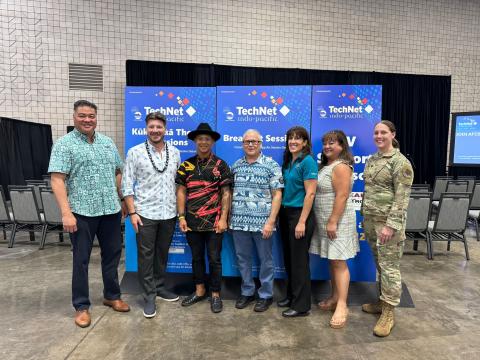Defense Department Revamps Mentor-Protege Program to Better Align Businesses With Needs
The Defense Department is altering its mentor-protege program to better match big and small business relationships so those partnerships better meet military needs, requirements and major defense acquisition programs, said Rob Stewart, the program’s manager.
The Defense Department is revamping its mentor-protege program to better match big and small business relationships so those partnerships better meet military needs, requirements and major defense acquisition programs, said Rob Stewart, the program’s manager.
Outreach efforts by individual services such as the Army and Navy adequately address issues of meeting mission needs, he said. But harnessing small business innovation—and connecting small businesses to larger businesses that can teach them the ropes—requires more of a concerted focus from higher levels within the department, Stewart said.
The Defense Department's Office of Small Business Programs seeks input from defense and federal contractors, big and small, on exactly how the department can accomplish the refocused goal, he said. It also wants “help in trying to find out what the minimum requirements and concerns [are] from medium and large companies" to do business with small businesses, Stewart presented during an AFCEA International Small Business Programs event Thursday.
In particular, the office wants to posture small businesses to go after mentor-protege agreements in fields that would help the Defense Department shore up IT networks, cybersecurity vulnerabilities and similar challenges that face the department, Stewart said.
The mentor-protege program, which began in 1991, provides incentives to major Defense Department contractors that connect with and aid small businesses to enhance capabilities and offerings and qualify them as viable subcontractors and suppliers to win department and other federal business. It is a congressionally mandated program that falls under the Office of Small Business Programs and was reauthorized under the 2016 National Defense Authorization Act though September 2018.
It essentially serves as the only development program that takes a small business and prepares it to bid on either prime or subprime contracts, Stewart said.
To qualify for mentor status, companies must be eligible for awards of federal contracts, have at least one active approved subcontracting plan negotiated with the Defense Department or another agency and have some expertise in an area of interest for the department. For companies seeking to be proteges, they must meet requirements for small disadvantaged businesses, employ severely disabled persons, be woman-owned or service-disabled veteran-owned, or be a historically underutilized business zone business.
Part of the Office of Small Business Programs' focus on being more proactive last year resulted in more than $10 million in Defense Department requirements moved into small business set-asides, reserves and competitive efforts. “That, in and of itself, is unprecedented,” Stewart said.
This spring, the office plans to hold a mentor-protege training week in Houston, drawing 500 to 600 small businesses that seek to match up with large businesses for federal contract work.
The program aims to enhance the ability of small businesses to compete more successfully for federal government contracts by pairing them with larger companies that can assist in improving their performance. “We look at your current capabilities, then where you want to be, and we go out and we try to shop you out. We point you in the right direction of who are satisfactory mentors,” Stewart said.
“We try to tie your company to a program of need or program of record or an actual requirement, so that at the end of your agreement, when you’re done making this special radioactive waffle toaster-maker, there is someone on the other end who wants to buy this radioactive waffle toaster-maker,” he said, electing chuckles from the audience. “Oftentimes, you have some really cool stuff that you’re doing, but having really cool stuff … and no one who wants it just means you have some really cool stuff that you can play with by yourself. That doesn’t really help you.”
The efforts mirror AFCEA’s Small Business Programs’ aim to teach small businesses how to navigate the federal contracting process. It will host its third in a series of contracting events February 9 that will highlight the risks and rewards of moving from being a subcontractor to a prime contractor to help businesses that want to grow.




Comments